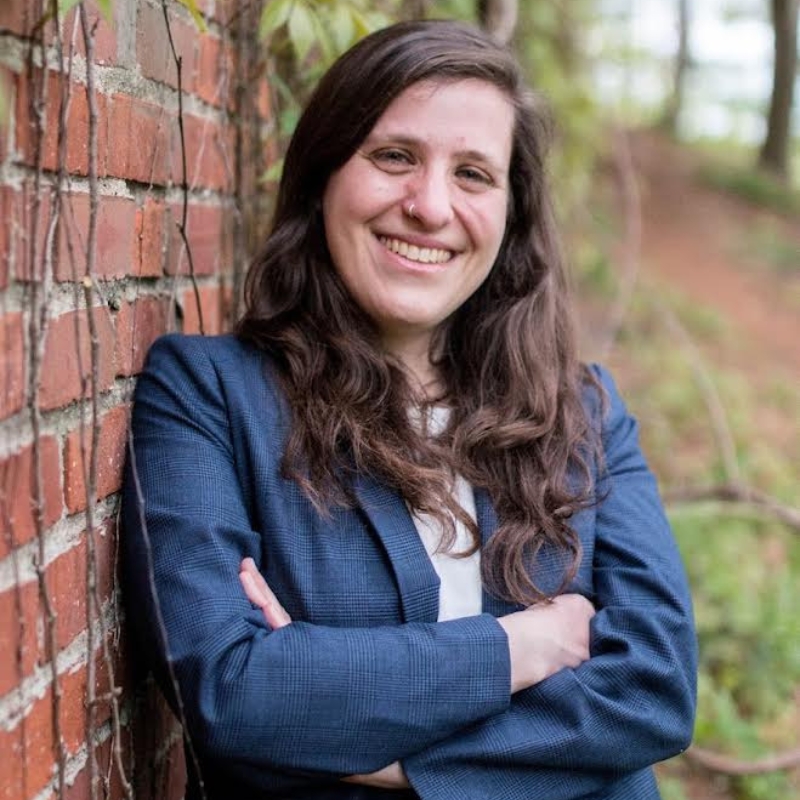As a rabbi who feels urgency about ending the war in Israel and Gaza, and who feels that the stakes of our election couldn’t be higher, I often ask myself this question: What kind of torah will light a fire under us? What kind of torah will get us to do something?
My first answer would not be Parshat Ki Tavo.
In this week’s parsha, the story of the Exodus from Egypt is retold as part of a ritual of gratitude that our ancestors did in the Land of Israel:
My father was a wandering Aramean. He went down to Egypt with meager numbers and sojourned there; but there he became a great and very populous nation. The Egyptians dealt harshly with us and oppressed us; they imposed heavy labor upon us. We cried to Adonai, the God of our fathers, and Adonai heard our plea and saw our plight, our misery, and our oppression. Adonai freed us from Egypt by a mighty hand, by an outstretched arm and awesome power, and by signs and portents. (Deuteronomy 26:5-8)
Now, this is an incredibly powerful narrative when we think about it in the context of gratitude. What a gift that God heard our cries, freed us from Egypt, and enabled us to experience abundance. We should not take this for granted for a second. Yet this version of the Exodus story does not inspire action. In this version, God is the only agent. We are passive recipients of God’s blessing. In this story, our role is to cry out to God, and wait for God to save us.
Find more commentaries on Ki Tavo.
The version of the Exodus story in the Book of Exodus, however, does just the opposite. It lights a fire. It demands that we act.
This first version of the story is about what is possible when human beings and God partner in the project of justice and liberation. It is the story of God calling Moses and Aaron to leadership, and of Moses and Aaron going to Pharaoh and demanding freedom. (Exodus 7) It is the story of Shifra and Puah resisting Pharaoh and refusing to kill the Jewish baby boys. (Exodus 1:15-20) It is the story of the Israelites having the courage to leave everything comfortable behind and walk towards a freedom that they could barely imagine. (Exodus 12:33) This is a story about what is possible when human beings act.
And, in this way, the words in Exodus ask something of us that the words in Deuteronomy do not. We are called to do something. It asks us to take seriously our power and ability to create change. It asks us to get off the couch, and to use the best of our spiritual and political wisdom (which is to say, to use the spark of Divinity within us) to challenge the injustice of our time and transform the world.
Sign up to receive (M)oral Torah in your inbox each week.
This is the kind of torah we need right now. In the face of devastating war, human suffering, and injustice in Israel/Palestine — and in this time when our own country’s future hangs in the balance — we need torah that propels us towards using our power and agency. We need torah that reminds us that our actions matter, that our courage matters, that our work to imagine and insist on a different future matters. We need torah that will get us to the polls, that will get us to have the hard conversations, that will get us joining together on the streets. The Talmud teaches that studying Torah is great because it leads to action (Kiddushin 40b). We need torah that does just this. Our future requires no less.
Thank God we have such a well of torah to draw on for such times. For me, the Exodus story in the Book of Exodus has always been this torah, but there is so much more. In this precarious time, may each of us find the torah that lights the fire under us, and that gives us what we need to meet this moment with courage, strength, and tenacity.
Rabbi Mimi Micner (she/her) serves a small Conservative synagogue in the Boston suburbs and as faculty for Kirva: Spiritual Practice & Action for Social Change. She is currently a T’ruah campaign co-chair for the No New Women’s Prison campaign in Massachusetts. Before becoming a rabbi, she was a community organizer for the AFT and J Street U.

